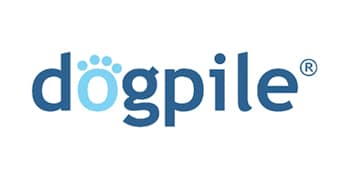
Email Marketing Best Practices for Derby Businesses
In the bustling heart of Derby, businesses are constantly seeking innovative ways to engage with their audience and drive growth. One of the most effective and versatile tools in this endeavour is email marketing. Despite the rise of social media and other digital marketing platforms, email remains a powerful channel for direct and personalised communication. For Derby businesses looking to optimise their marketing efforts, understanding and implementing best practices in email marketing is crucial.
Understanding Your Audience
The foundation of any successful email marketing campaign is a deep understanding of your audience. Derby, with its rich industrial history and diverse population, presents a unique market. Businesses must tailor their email content to resonate with the local demographic. Conducting thorough market research to gather insights about customer preferences, behaviours, and pain points can significantly enhance the relevance of your emails.
Segmenting your email list based on these insights allows for more targeted communication. For instance, a retail business in Derby might segment its audience by age, purchasing behaviour, or geographic location within the city. By sending tailored messages to each segment, businesses can increase engagement and conversion rates. Personalisation goes beyond simply addressing the recipient by name; it involves delivering content that speaks directly to their interests and needs.
Conducting Market Research
To begin understanding your audience, it’s essential to conduct comprehensive market research. This might involve surveys, focus groups, and analysing data from existing customer interactions. Derby businesses can utilise local community events, social media groups, and partnerships with local organisations to gather valuable insights.
Creating Detailed Buyer Personas
Once you have gathered enough data, creating detailed buyer personas can help in visualising and categorising your audience. These personas should include demographic details, behavioural traits, purchasing habits, and pain points. For example, a local bakery might identify personas such as “Young Professionals”, “Families with Young Children”, and “Elderly Residents”. Each persona would have specific needs and preferences that can guide your email content strategy.
Crafting Compelling Content
The success of an email marketing campaign hinges on the quality of its content. For Derby businesses, this means creating emails that are not only visually appealing but also provide value to the recipient. The subject line is the first point of contact and must be crafted to capture attention immediately. It should be concise, intriguing, and reflective of the email’s content.
Writing Effective Subject Lines
A subject line needs to be compelling enough to make the recipient want to open the email. A/B testing different subject lines can help identify what resonates best with your audience. For instance, a local clothing store might test subject lines like “Exclusive Sale for Derby Residents!” against “Get 20% Off Your Next Purchase”.
Engaging Copy and Visuals
Once the email is opened, the content must deliver on the promise of the subject line. This involves a combination of engaging copy, compelling visuals, and clear calls-to-action (CTAs). The copy should be succinct, informative, and aligned with the brand’s voice. Visual elements, such as images and videos, should complement the text and enhance the overall message.
For example, a Derby-based restaurant could send an email featuring a new seasonal menu. The email might include appetising images of the dishes, a brief description of each item, and a CTA encouraging recipients to make a reservation. Including special offers or discounts can also drive engagement and conversions.
Storytelling and Emotional Connection
Incorporating storytelling into your emails can make them more engaging and relatable. Sharing success stories, customer testimonials, or behind-the-scenes glimpses can create an emotional connection with your audience. For example, a local fitness centre might share a member’s success story to inspire and motivate other subscribers.
Timing and Frequency
Timing is another critical factor in the success of email marketing campaigns. Sending emails at the right time can significantly impact open and click-through rates. For Derby businesses, it’s important to consider the local habits and routines of their audience. For example, sending promotional emails during lunchtime might be effective for a restaurant, while a retail store might find success by targeting customers in the early evening when they are more likely to be checking their emails.
Understanding Local Routines
Understanding the daily and weekly routines of your audience can help in determining the optimal times for sending emails. For example, a Derby-based florist might find that sending emails on Thursday afternoons, just before the weekend, results in higher engagement as customers plan their weekend activities.
Testing and Adjusting Frequency
Frequency is equally important. Bombarding subscribers with too many emails can lead to fatigue and higher unsubscribe rates. Conversely, sending emails too infrequently can result in your brand being forgotten. Finding the right balance is key. Analysing engagement metrics can help determine the optimal frequency for your audience. A/B testing different send times and frequencies can also provide valuable insights.
Mobile Optimisation
In today’s digital age, a significant portion of email recipients will view your messages on mobile devices. Ensuring that your emails are mobile-friendly is crucial for maximising engagement. This involves using a responsive design that adapts to different screen sizes, keeping the layout simple, and using large, easily tappable buttons for CTAs.
Designing for Mobile Users
For Derby businesses, this might mean designing emails that are easy to read on the go. For instance, a local event organiser could send out an email with details about an upcoming event, including a map and directions that are easily accessible on a smartphone. By prioritising mobile optimisation, businesses can enhance the user experience and increase the likelihood of recipients taking the desired action.
Simplified Layouts
A simplified layout with a single column format can make emails easier to read on mobile devices. Using larger fonts, clear headings, and sufficient white space can improve readability. Additionally, ensuring that images are optimised for fast loading on mobile networks can prevent frustration and enhance engagement.
Building and Maintaining Your Email List
A high-quality email list is the backbone of any successful email marketing campaign. Building this list requires a strategic approach that prioritises quality over quantity. For Derby businesses, this might involve offering incentives for sign-ups, such as exclusive discounts, early access to sales, or valuable content like eBooks or guides.
Strategies for List Building
To build a robust email list, consider employing multiple strategies simultaneously. These might include pop-up forms on your website, sign-up sheets at local events, and social media promotions. Collaborating with other local businesses for joint promotions can also be an effective way to expand your reach.
Maintaining List Quality
Once you have built your list, it’s essential to maintain its quality. Regularly cleaning your email list to remove inactive subscribers can improve your open and click-through rates. Using double opt-in methods can ensure that subscribers genuinely want to receive your emails, reducing the risk of spam complaints and unsubscribes.
Engaging New Subscribers
First impressions matter. Engaging new subscribers from the outset with a well-crafted welcome series can set the tone for a positive relationship. This series could include a welcome message, an introduction to your brand, and exclusive offers to incentivise the first purchase or interaction.
Compliance and Privacy
In the wake of data protection regulations like the General Data Protection Regulation (GDPR), compliance and privacy have become critical aspects of email marketing. Derby businesses must ensure that their email practices comply with these regulations to avoid hefty fines and reputational damage.
Understanding GDPR
GDPR compliance involves obtaining explicit consent from subscribers before adding them to your email list, providing clear and easy options for opting out, and being transparent about how you will use their data. Including a privacy policy link in your emails can also help build trust with your audience.
Transparent Data Practices
Being transparent about your data practices can enhance trust and loyalty among your subscribers. Clearly explaining how you collect, store, and use their data, and ensuring they have control over their preferences, can foster a positive relationship. Regularly updating subscribers on any changes to your privacy policy is also crucial.
Analysing and Optimising Performance
To continually improve the effectiveness of your email marketing campaigns, it’s essential to analyse performance metrics and make data-driven decisions. Key metrics to monitor include open rates, click-through rates, conversion rates, and unsubscribe rates. For Derby businesses, understanding these metrics can provide insights into what resonates with their audience and what doesn’t.
Using Advanced Analytics
Using tools like Google Analytics can help track the performance of your email campaigns and identify areas for improvement. For example, if you notice that emails with certain subject lines have higher open rates, you can refine your subject line strategy accordingly. Similarly, analysing click-through data can help you understand which CTAs and content are most effective.
Conducting A/B Tests
A/B testing, or split testing, involves sending two variations of an email to different segments of your audience to see which performs better. This can be done with subject lines, email content, CTAs, and send
times. By systematically testing and analysing results, Derby businesses can optimise their email marketing strategies for better engagement and conversion rates.
Iterative Improvement
Email marketing is not a set-it-and-forget-it strategy. Continuous improvement based on performance data is crucial. For instance, if a local café notices that their weekend promotional emails perform better than weekday ones, they might focus more of their efforts on weekend campaigns. Regularly reviewing and adjusting your strategy ensures that you remain aligned with your audience’s evolving preferences and behaviours.
Integrating Email with Other Marketing Channels
Email marketing should not exist in isolation. Integrating it with other marketing channels can amplify its effectiveness and create a cohesive brand experience. For Derby businesses, this might involve using email to complement social media campaigns, drive traffic to their website, or support in-store promotions.
Cross-Promotional Strategies
For instance, a local boutique could use email to announce a new collection, while simultaneously promoting it on social media and offering in-store discounts. By creating a seamless experience across channels, businesses can reinforce their message and engage customers through multiple touchpoints. Social media icons in emails can encourage recipients to follow your business on other platforms, enhancing your overall digital presence.
Synchronising Content Calendars
Synchronising your email content calendar with other marketing activities ensures a consistent brand message. For example, a Derby-based real estate agency might align their email campaigns with seasonal trends, local events, and social media content. This integrated approach can enhance the effectiveness of your marketing efforts and provide a unified customer experience.
Leveraging Automation
Email marketing automation can save time and increase efficiency while delivering personalised experiences at scale. For Derby businesses, automation tools can help streamline processes like welcome emails, birthday messages, and abandoned cart reminders.
Setting Up Automated Workflows
Setting up automated workflows allows businesses to nurture leads and build relationships with minimal manual effort. For example, an e-commerce store in Derby could set up an automated series of emails for new subscribers, starting with a welcome message, followed by a series of emails showcasing best-selling products, customer testimonials, and exclusive offers.
Personalised Automated Campaigns
Personalisation is key in automated campaigns. Using customer data to tailor messages can significantly enhance engagement. For instance, a local gym might send personalised workout tips based on the subscriber’s preferences and past interactions. Automation platforms often offer segmentation options, enabling more precise targeting and improved results.
Engaging with Interactive Content
Interactive content can significantly boost engagement and provide a more immersive experience for your audience. For Derby businesses, incorporating elements like polls, surveys, and quizzes into emails can encourage interaction and provide valuable insights into customer preferences.
Creating Interactive Elements
For instance, a local fitness centre could send out a survey to its email list, asking subscribers about their preferred workout times or classes. This not only engages the audience but also provides data that the business can use to tailor its offerings. Including interactive elements like countdown timers for limited-time offers or clickable image carousels can also enhance engagement.
Gamification in Emails
Incorporating gamification elements, such as challenges or rewards, can make your emails more engaging. A local bookshop might create a reading challenge, encouraging subscribers to read a certain number of books and providing rewards for participation. This approach not only drives engagement but also fosters a sense of community and loyalty.
Nurturing Customer Relationships
Email marketing is not just about driving sales; it’s also about building and nurturing relationships with your customers. For Derby businesses, this involves creating a sense of community and loyalty among their audience.
Consistent Communication
Regularly sending personalised and value-driven content can help strengthen these relationships. For example, a local bakery could send out monthly newsletters with baking tips, recipes, and behind-the-scenes stories. By providing consistent value, businesses can foster a loyal customer base that is more likely to engage and convert.
Customer Appreciation Emails
Showing appreciation for your customers can go a long way in building loyalty. Sending personalised thank-you emails, exclusive birthday offers, or loyalty rewards can make customers feel valued. For instance, a Derby-based hair salon might send a special discount to clients on their anniversary of their first appointment, reinforcing the relationship and encouraging repeat business.
Feedback and Engagement
Encouraging feedback and engagement through emails can also help in building strong relationships. Including a survey or a simple question asking for feedback on recent purchases or experiences can provide valuable insights and show customers that their opinions matter.
Monitoring Industry Trends
Staying up-to-date with industry trends and best practices is crucial for maintaining a competitive edge in email marketing. For Derby businesses, this means keeping an eye on what other local and national businesses are doing and adapting their strategies accordingly.
Learning from Competitors
Subscribing to newsletters from competitors and industry leaders can provide insights into effective strategies and emerging trends. For instance, a Derby-based hotel might gain ideas for their email campaigns by observing how successful hospitality brands engage with their audience.
Attending Industry Events
Attending marketing conferences, webinars, and local business events can also provide valuable learning opportunities. Networking with other professionals and sharing experiences can help Derby businesses stay ahead of the curve and continuously improve their email marketing efforts.
Continuous Professional Development
Investing in continuous professional development for your marketing team can ensure that they stay abreast of the latest tools, techniques, and strategies. Online courses, certifications, and workshops can enhance their skills and keep your email marketing campaigns innovative and effective.
Localising Your Email Marketing
For Derby businesses, localising your email marketing efforts can make your messages more relevant and engaging to your audience. This involves tailoring your content to reflect local culture, events, and interests.
Highlighting Local Events
Incorporating local events and news into your email content can make it more relevant to your audience. For example, a Derby café might send out emails promoting their participation in a local food festival or highlighting community events. This not only drives engagement but also reinforces your connection to the local community.
Using Local Language and References
Using local language, slang, and references can also make your emails feel more personalised and relatable. Understanding and reflecting the local dialect and cultural nuances in your email copy can create a stronger connection with your audience. For example, referencing popular local landmarks or events can make your emails more engaging.
Supporting Local Causes
Demonstrating support for local causes and charities can also resonate well with your audience. Sharing your involvement in local community initiatives or offering to match donations for local charities can enhance your brand’s reputation and foster goodwill among your subscribers.
Case Studies of Successful Email Marketing in Derby
Examining case studies of successful email marketing campaigns by Derby businesses can provide valuable insights and inspiration. Let’s explore a few examples:
Case Study 1: Derby Boutique
A local boutique in Derby implemented a segmented email marketing strategy, dividing their audience into segments based on purchase history and preferences. They sent personalised emails featuring product recommendations, styling tips, and exclusive discounts. This approach led to a 30% increase in email open rates and a 25% increase in sales over three months.
Case Study 2: Derby Fitness Centre
A fitness centre in Derby used email automation to send personalised workout plans and motivational messages to their subscribers. By incorporating interactive elements like progress tracking and personalised goals, they achieved a 40% increase in engagement and a significant boost in membership renewals.
Case Study 3: Derby Restaurant
A Derby-based restaurant used email marketing to promote their new seasonal menu and special events. By sending visually appealing emails with mouth-watering images and clear CTAs, they saw a 20% increase in reservations and a 15% increase in attendance at their events.
In Conclusion
Email marketing remains a powerful tool for Derby businesses looking to connect with their audience and drive growth. By understanding their audience, crafting compelling content, optimising for mobile, and leveraging automation, businesses can create effective email campaigns that deliver results. Building and maintaining a high-quality email list, ensuring compliance with data protection regulations, and integrating email with other marketing channels are also critical components of a successful email marketing strategy.
Derby businesses must focus on creating personalised, relevant, and engaging email content that resonates with their audience. Regularly analysing performance metrics and staying abreast of industry trends can help refine strategies and improve outcomes. By prioritising customer relationships and continuously providing value, businesses can foster loyalty and drive long-term success.
Ultimately, the key to effective email marketing lies in balancing creativity with data-driven decision-making, ensuring that every email sent serves a purpose and contributes to the overall marketing goals. For businesses in Derby, mastering these best practices can lead to increased engagement, higher conversion rates, and sustained growth in a competitive market.



























